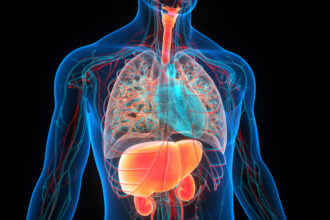A compact study featured in the Journal of the Endocrine Society suggests that a rigorous workout is more effective in curbing hunger levels in healthy adults than moderate exercise, with females potentially being more responsive to this effect.
The investigation delves into how the intensity of physical activity influences ghrelin levels and hunger perceptions among genders. Ghrelin, commonly called the “hunger hormone,” is crucial in regulating hunger sensations.
“High-intensity exercise was found to lower ghrelin levels more significantly than moderate-intensity exercise,” stated Kara Anderson, Ph.D., from the University of Virginia and the University of Virginia Health System in Charlottesville, Virginia. “Moreover, individuals reported feeling ‘less hungry’ following vigorous exercise compared to less strenuous workouts.”
Ghrelin exists in two forms: acylated (AG) and deacylated (DAG), both of which impact appetite differently. Previous research primarily focused on males, revealing a gap in data concerning the impact of exercise intensity on AG and DAG levels and their subsequent effects on hunger.
The study addressed this knowledge gap by examining eight male and six female participants. After fasting overnight, they engaged in exercise sessions of varying intensities, gauged by blood lactate levels, and then assessed their hunger levels.
Females had higher baseline levels of total ghrelin than males. Notably, following intense physical exertion, only the female participants showed a significant reduction in AG levels, according to the research results.
“Our findings indicate that moderate-intensity exercise did not alter ghrelin levels significantly or caused a net increase,” noted the study. These results propose that exercising beyond the lactate threshold might be essential to reducing ghrelin levels.
The researchers also highlighted the need for further studies to explore how the effects of exercise might vary between sexes.
Ghrelin is implicated in various biological processes, including energy balance, appetite regulation, glucose metabolism, immune response, sleep, and memory.
“Exercise should be considered as a ‘drug,’ with the ‘dose’ tailored to individual health and fitness objectives,” Anderson commented. “Our findings suggest that high-intensity exercise could play a crucial role in suppressing appetite, which might be particularly beneficial in weight management strategies.”
More information: Kara C Anderson et al, The Impact of Exercise Intensity and Sex on Endogenous Ghrelin Levels and Appetite in Healthy Humans, Journal of the Endocrine Society. DOI: 10.1210/jendso/bvae165
Journal information: Journal of the Endocrine Society Provided by The Endocrine Society








